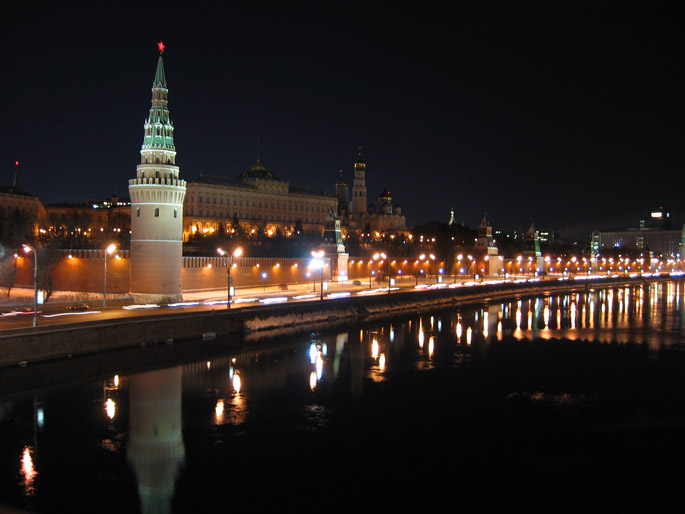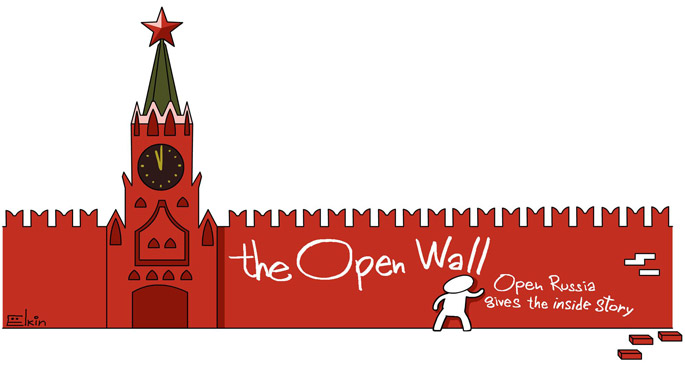The Night Manager
The Night Manager
According to Dmitry Peskov, the president’s press secretary, a recent late-night government meeting in the Kremlin on the state of the Russian economy was nothing out of the ordinary. But why has Mr Putin become a nocturnal creature?

Because he works so hard, apparently, and there aren’t enough hours in the day to get through his workload. So, on this occasion, seven major figures from the world of economics – five men and two women – braved the regular “Putin night shift.”
It is hard to say just how important this meeting was. Peskov rather airily said that it was “an absolutely routine meeting,” and one “without any public agenda whatsoever.” Without going into details, he said that the meeting touched on “pressing [issues], and questions of medium-term economic development.” Recession perhaps? The collapse in the price of oil and gas? The need to restructure the economy? Nobody knows.
But is this really an efficient way to run the country?
“If people aren’t used to emergency-services-style work patterns (a 24-hour shift followed by two or three days off), a nocturnal meeting on top of a full working day can seriously deplete the central nervous system,” says one Moscow-based psychiatrist. “The risk of making an erroneous decision [at a night-time meeting] therefore increases.”
Still, our friendly psychiatrist believes that, while fraught with risks, night-time meetings can also serve to generate rare moments of inspiration and insight. So wasting them on routine matters is not, perhaps, entirely sensible: “Our brains and psyches are such that during nocturnal brainstorming sessions we’re sometimes able to come up with brilliant solutions to problems we couldn’t get to grips with in ordinary ‘day mode.’ Stalin, for example, would hold night-time talks with his generals precisely because those nocturnal hours provided him with answers that escaped him during the day.”
Stay with us on the next bit … “A certain nuance must be considered, however. In moments of nervous exhaustion, when the scale of events forces people to carry on working, it’s a good thing for the subconscious to engage the superego (the “social self,” according to Freud’s tripartite model of personality), because decisions made by government officials will then likely be of benefit to society and to millions of people. If, on the other hand, the subconscious engages the ‘personal self’ (and this is a ‘Pandora’s box’ sitting inside each and every individual), you could start making wrong and destructive decisions. The subconscious, moreover, can ‘engage’ anything at all – it’s a stray bullet.” Which means that for the sake of the country, we all have to hope that the president knows when to use his superego, and doesn’t let his ‘personal self’ get in the way of making those decisions that will benefit us all, rather than the ones that tend to favour his inner circle.
The president’s night-time activities aren’t limited to the corridors of power: since 2012, he has been taking to the ice in Russia’s Night Hockey League (NHL) – alongside a posse of tried-and-trusted attendants: Defence Minister Sergei Shoigu, Tatarstan President Rustam Minnikhanov, Gazprom’s Alexander Medvedev, the Rotenberg brothers, Gennady Timchenko and others. Of course, it can be difficult for the president’s courtiers to separate their undoubted passion for midnight hockey from their love for the president, but they ought nonetheless to heed this cardiologist’s warning about night-time sport: “People over the age of 55-60 tend to be affected by accumulating problems associated with high blood pressure, coronary heart disease and diabetes. Problems usually begin when we systematically override our own desires, and force ourselves to do sport rather than acting on the needs of our organism as and when they arise.”
But these loyal subjects have no choice; proximity to the ruler’s body is necessary for advancement and survival; and has been for centuries in Russia. The result is a court of fawning creatures, dependent on the whim of one man; as we all are.
A system that hangs on the thoughts, decisions and emotions of a single person can be neither reliable nor predictable; and can certainly never deliver a thriving economy, which is beyond the reach of even a superman. Only the reinvigoration of institutions will halt this paralysis. And then we can all have a good night’s sleep.




